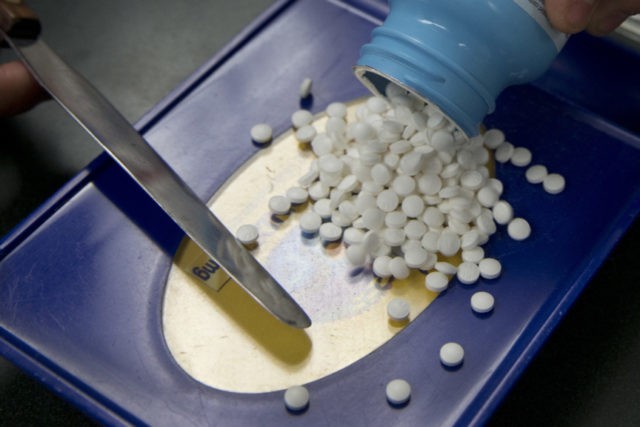The Congressional Budget Office (CBO) released an analysis on Friday that found that Senate Finance Committee Chairman Chuck Grassley (R-IA) and Ranking Member Ron Wyden’s (D-OR) drug pricing bill would cut spending by $95 billion, reduce out-of-pocket spending, and reduce premiums.
The CBO found that Grassley and Wyden’s Drug Pricing Reduction Act would save taxpayers $95 billion, reduce out-of-pocket spending by $72 billion, and reduce premiums by $1 billion.
Grassley said in a statement on Friday:
Our bipartisan legislation saves billions in out-of-pocket expenses, premiums and taxpayer dollars. We’re continuing to build support for the bill and this information will be key in educating our colleagues about the many benefits of our approach. Americans are tired of talk and are ready for action. I urge both Democratic and Republican senators to look past politics and support the only path forward to lower prescription drug prices.
“The bill would basically reform a lot of federal spending on health care, particularly through Medicare, Medicaid,” the Iowa senator said.
Grassley explained how the bill would reduce government spending, telling Boyle:
We would reduce subsidies from Medicare to the pharmaceuticals. We would put a year-over-year cap on price increases at the rate of inflation. We would put a big cap on the amount of money that one consumer would have to spend out-of-pocket. It would save the taxpayers about 80 billion dollars. It would take some of the secrecy out of the pricing of drugs. It would take some of the secrecy out of the middle man that we call a pharmaceutical benefits managers (PBMs), because all that secrecy keeps the marketplace from working, and more transparency would enhance competition. And with the more transparency you get more accountability, and we don’t have that accountability today. It would do away with the donut hole that I won’t explain, but it’s been a controversial part of Part D since it was established in 2003. But the main thing is it would cause the marketplace to work. It would stop subsidies to Big Pharma. Well, not stop subsidies, but it would limit the subsidies, because presently there’s no limit on how much they can increase drug prices – this year five to ten percent – and it ought to be limited to the inflation rate. So that’s a broad summary. It does a lot more than what I just told you.
During Trump’s State of the Union address, the president promised to sign a bipartisan drug pricing bill.
Trump said:
And working together, the Congress can reduce drug prices substantially from current levels. I have been speaking to Senator Chuck Grassley of Iowa and others in the Congress in order to get something on drug pricing done, and done properly. I am calling for bipartisan legislation that achieves the goal of dramatically lowering prescription drug prices.
“Get a bill to my desk, and I will sign it into law without delay,” he added.
Sean Moran is a congressional reporter for Breitbart News. Follow him on Twitter @SeanMoran3.

COMMENTS
Please let us know if you're having issues with commenting.